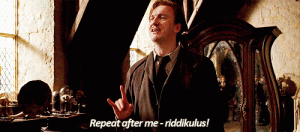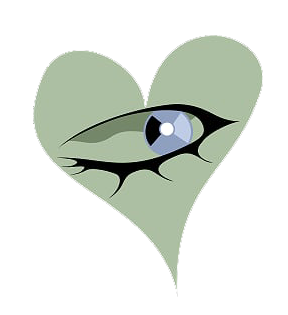
We Are Not Your Minions
August 29, 2020
Creating Above the Noise
December 4, 2020The Power of Brainstorming

I was recently working on chapter sixteen of Confession, putting me about six chapters from the end, and I was having some trouble finding the pace from that point on. And then with trying to fine tune the actual ending. Outlines don’t work for me – I don’t use ’em. I already know from experience that when I hit the two-thirds mark – where I am with Confession – the best thing for me to do is jot down three or four words that will direct me for each upcoming chapter, but that’s it. This particular day, though, I had no words.
It happens and I should be used to it by now, knowing that it will pass and the answers will come. Instead, it always throws me into a tailspin that makes me question the entire book, sometimes even the whole series, and I wonder if I should just scrap everything. Maybe someday I’ll recognize it for what it is, kick back with a glass of chardonnay while it lingers, and casually tell it, “Don’t let the door hit you on the ass.” For now, though, I’ll keep doing what I do best…and freak.

I know the story like I know the back of my hand, but I felt like my arc had been shot to hell. It took me sixteen chapters to see that I had blown it all in a much earlier chapter, leaving me with a flatline story from that point on. There were no more revelations, no epiphanies, nothing lurking around the corner waiting to jump out and grab the reader. Just a whole bunch of words that read to me like Charlie Brown’s teacher would have made for the perfect narrator.
So, there I was contemplating my future as an author if I couldn’t get myself over this hump and considering a career as a star McDonald’s burger-flipper when it dawned on me – it was time to phone a friend!
Enter the illustrious…the esteemed…the mega-talented…author Jon Ford. (If you haven’t already, find him here and here. You’re welcome.)
I spent the next hour engaged in a highly-focused conversation that ultimately yielded the answers that had been alluding me when I sat alone, racking my own brain.
We went over where I was at the point in the story when my plan seemingly went to hell in a hand basket. We discussed where I had originally been intending to go with the rest of it. Jon asked some thought-provoking questions, and as I answered him, as I heard myself talking about the story, ideas started to flow. I heard the clicking in my brain as the pieces fell into place.
Nik: But what do I do about where this part is now? It’s too early!
(If you don’t already know, Jon is a genius at moving a story around so that everything comes together like the perfect puzzle.)
Jon: What if you put this here and that there? And develop this some more?
What?? Brilliant!!
An hour later, I stuffed my McDonald’s application in a drawer for another day, thanked my dear friend, and felt confident about finishing my second book. All thanks to the power of brainstorming.
A quick Google search yields this official definition of brainstorming: group discussion to produce ideas or solve problems.
You already knew that. But is it a tool that you keep at the ready, prepared to deploy at a moment’s notice?

Nope, sorry, Professor. It isn’t riddikulus or ridiculous or even ridunculous. To me, it’s necessary.
Now, I know a lot of us would like to keep our story ideas locked away from the rest of the world until such time as we’re ready to release them into the wild. These are our babies, after all. We nurture them as we write and we want to protect them with our lives until they’re ready to fly. However, I can’t stress enough how productive this resource has been to me.
Jon has landed himself in the role of top dog go-to guy for my fiction writing, but consulting others during times of questionable direction has been a tactic of mine for a long time. Whether in business or my personal life, seeking countenance just…helps.
Sometimes it’s a matter of hearing myself say the problem out loud that returns results. Other times it comes down to a friend asking the pertinent questions that set me on the right course. Either way, having someone to listen and bounce ideas off of is the solution ninety-nine percent of the time.
This means that I can’t lock my manuscript away in a vault protected by goblins and dragons. As much as I would love for Jon to read it blind, having no idea beforehand what romantic antics my story has in store for him, I have to tell him what I’ve done, where I’m going, and why I’m stuck. But losing the element of surprise comes with a trade-off of invaluable help.
In addition to sharing key story points before it’s really ready for a reader’s eyes, for obvious reasons, I also have to trust him. Fortunately, I know he is a man of integrity and thieving catch phrases or ideas is not even a thought in his atmosphere.
So, what does all of this mean for you? For starters, it means I highly recommend getting yourself on the buddy system, if you aren’t  already. You may feel that you’re structured to be a loner. Out there in the imagination wilderness, a sole pioneer ready to climb Paperback Mountain (yes, I went there), shouting out your accomplishment once you arrive.
already. You may feel that you’re structured to be a loner. Out there in the imagination wilderness, a sole pioneer ready to climb Paperback Mountain (yes, I went there), shouting out your accomplishment once you arrive.
I felt the same way. I couldn’t fathom wanting or needing outside input. Hey, this is my story! Well, guess what? It’s still my story. Mine alone. Having a conversation to help smooth out some kinks (no pun intended) doesn’t take away from these books being my own creation. My personal accomplishment.
Now, I realize that finding someone you trust implicitly who jives with your train of literary thought isn’t an easy task. Like all relationships in life, these things can’t be forced. But if you know someone whose writing you admire, who seems to have a solid code of ethics, reach out and have a conversation. See if you make a connection.
These brainstorming sessions have become one of my favorite parts of this voyage. They’ve even helped to give my characters more life than they already had. Through the talks, I’ve better fleshed out their personalities which, in turn, adds another level of depth to their thoughts, feelings, reactions, etc.
Opening up to another and sharing a WIP (work in progress) before it’s ready to be seen can be overwhelming. While it’s still in one of its many draft forms, it’s evidence of how you write before the professional editing and smoothing process has taken place. I don’t know about you, but that was kind of scary to me at first. Then I reminded myself that we all go through this. No one writes a novel that is perfect from the start. We all know what rough scratch work looks like because…well, we do it ourselves.
So, the next time you find yourself in a pickle, consider having an in-depth chat with a friend or a fellow writer. (If you know someone who isn’t a writer but is an avid reader, they can be a big help, too!) The person you’re looking for won’t tell you what to do, but will lead you to the Fountain of Ideas.
On your way there, don’t forget to stop and enjoy the journey!


20 Comments
That is great! Jon seems like a great friend to have. Brainstorming is brilliant and doing it with another writer just makes sense. Does he reach out to you too? I’m glad you tossed the application away for now.
Yeah, ha ha to the application! What a drastic measure (hopefully it’s a joke). I’m curious too if he or other fellow writer’s reach out to you too. It makes sense to have buddies in your line of work.
Thankfully the application is a joke!
Jon and I work very closely together on all of our writing, and there are a few other writers with whom I brainstorm. David DeWinter (@david_dewinter) and David Atherton-Cooper (@Kungfuponder) are two invaluable resources. And, of course, John Painz (@jpainz) is a tremendous help.
Hi, Katie! Apologies for such a late reply. Yes, he does. 🙂 We work together on everything we write, both of us bringing different strengths to the table, so it’s a great partnership.
The buddy system, smart in life and in writing. I really didn’t know that writers bounced ideas back and forth off each other if they aren’t collaborating. I love it though. I agree with Katie, Jon sounds like a great help.
I believe this is a great idea! Of course it’s still all “yours”. He just helped get the juices flowing again. Bravo to brainstorming with fellow writers and friends.
I love your blog!! What a gem.
Thank you so much! I’ve been to your site many times and have found some great information there, so it’s a huge compliment to have you stop by here! 🤗
For me, I find that brainstorming too early in the story-writing process dampens my enthusiasm for the piece. But when I need brainstorming help, I have a dedicated go-to person. It’s great that you have someone to bounce ideas off of! That’s what friends are for!
I like the idea of a dedicated go-to person., but my system isn’t as organized as all that! I’ll often ask several different people their opinions. I like hearing different perspectives. But I can see where having one dedicated person would be helpful too! Everyone has a different process, and that’s part of what makes writing so interesting!
Brainstorming is definitely a great technique to get new ideas and get things “moving” in your brain. But like you said, one needs to completely trust the person they are showing their unpublished work to, and that can be really hard (for me at least).
I have always had a hard time sharing my unpublished work or ideas with other people. I always felt a bit worried about being critiqued; although constructive criticism is a good thing.
I’ve found that if I share work too early, and it gets harshly critiqued, I’m not as excited about it as I was before I shared it. While I do think sharing a story with others for feedback is a vital part of the process, I am always nervous and wait until I at least have a first draft before I show it to others.
I hate sharing my stories and innermost feelings (my unfinished stories) with anyone until it’s finished. I get that we all hit roadblocks from time to time but I just can’t involve others. I’m glad it worked for you.
I don’t like sharing my ideas with people until they are very close to fully formed. If I share them too quickly, I lose enthusiasm for the idea. However, bouncing ideas off of someone is helpful for pinpointing issues you didn’t think of. I can’t even count the number of times someone has asked me a question about my story and pointed something out I didn’t even consider!
I don’t mind sharing my ideas early in the process. I find that I can catch plot issues that I might not have otherwise. I like catching those potential stumbling blocks earlier in the process as opposed to later, and sharing my idea is one way I do that.
I guess I am the same. I have 2 reasons for this: first, I don’t really trust anyone enough to share my unfinished work, and second, I am a bit worried about hearing bad comments. I know constructive criticism is a good thing, but I am still learning to deal with it.
Something that’s helped me with taking constructive criticism is to remember that it’s given the spirit of wanting to improve your work. In the past, I’ve shown my work to people and their comments were meant to tear me down and not to build me up. If you can find someone who gives you feedback because they genuinely want you to improve, that makes all the difference.
Recently, I’ve noticed that certain pieces of media get my creative juices flowing. I’ve been watching a lot of cartoons lately (guilty pleasure, I know!) and just today I sat down and started to write a story after a long dry spell! The style of the story is very similar to the cartoons I’ve been indulging in, but that’s not a bad thing! Having a go-to person is helpful, definitely, but I’d never considered a go-to cartoon for brainstorming! 🙂
Although it doesn’t concern anything formal, I like talking to strangers because it expands my awareness. I’ve learned about the world from having conversations online, and I find that information comfortable to digest due to its human aspect. People give me some stuff to think about from time to time.